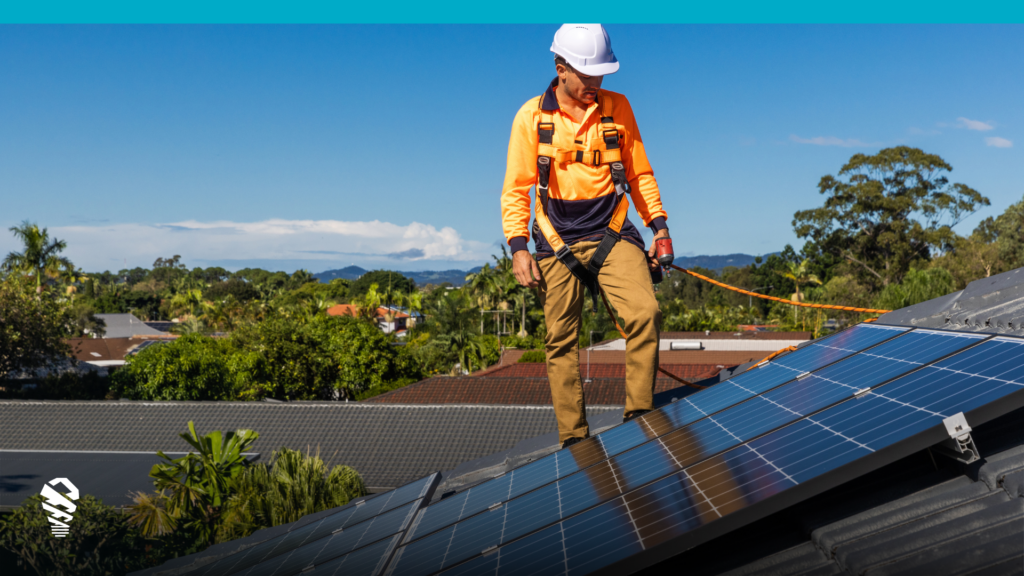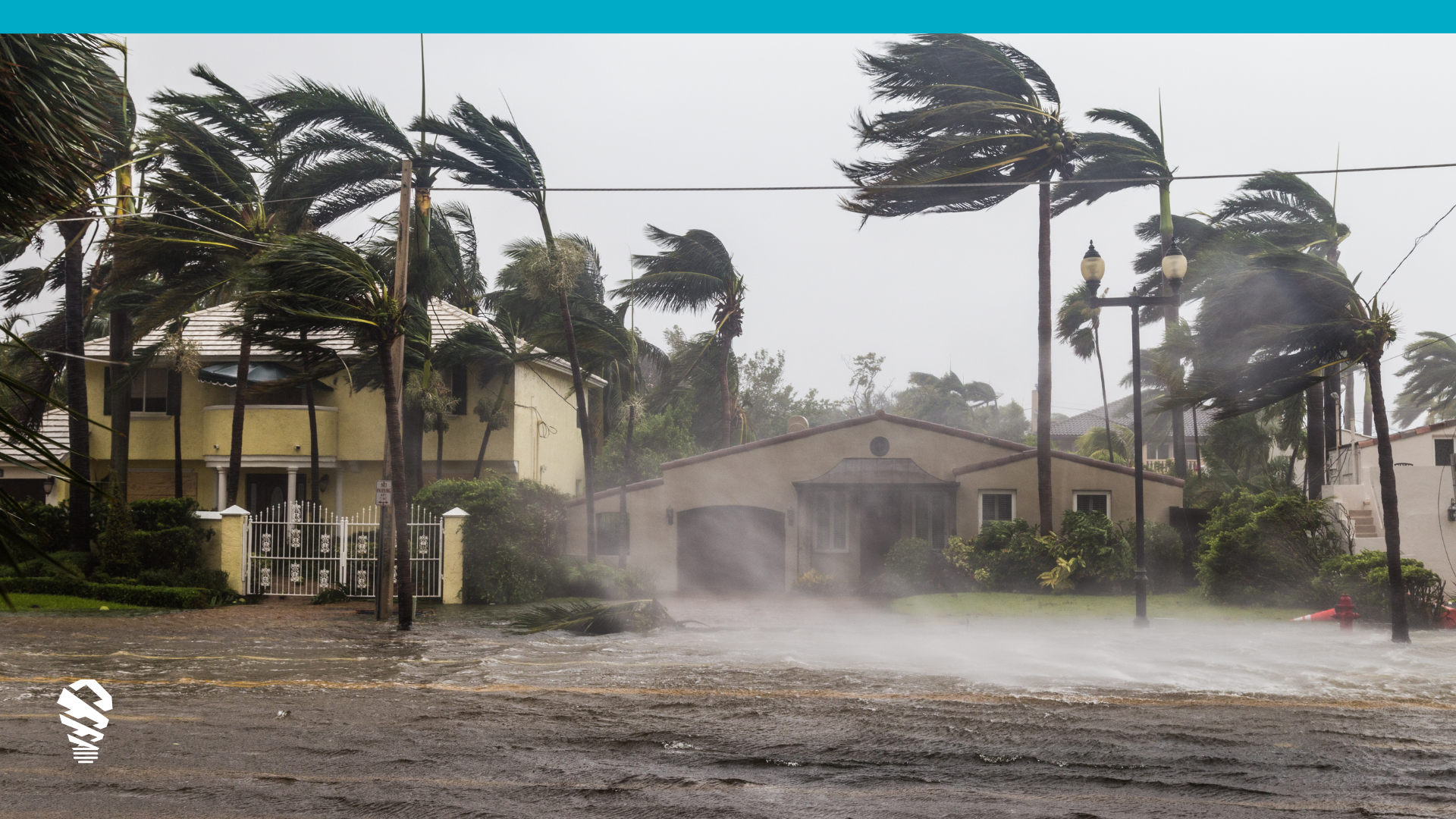Are you a roofer who has thought about installing solar? Roofs are your business. You know everything there is to know about roofs—construction, repair, permits, materials, safety, and about a million other things. If it has to do with a roof, you’re the expert. But what about roof-mounted solar panels? They’re becoming a common fixture on roofs, but many roofers still aren’t installing them. And it’s not because they’re unprofitable. So, why isn’t every roofer also a solar system installer?
Solar panels are made up of several individual solar cells, which are made of silicon, phosphorous (negative charge), and boron (positive charge). Solar cells convert sunlight directly into electricity by absorbing light to create an electric current. This DC power is converted to AC power and used onsite, then sent back to the power grid, or stored in lithium-ion batteries for future availability. These solar cells are also called photovoltaic cells, which are shortened to PV.
Yes, that was a technical description of solar panels. But the truth is, that installers don’t need to be electrical engineers to install solar. They just need to know that PV systems need to be installed on roofs in good repair, in the right roofing zones, and by a roofing professional. You know how to get a roof in good shape. You know about roofing zones. And you’re a roof expert. So, let’s get into the details of why you’re ready to start selling and installing PV systems.
Why Roofers are Qualified to Sell and Install Solar
PV systems sound like they should be installed by an electrician. But the roof is your domain. While an electrician’s license is required in some states, most of the installation has more to do with the roof and less to do with actual electricity. When it comes down to it, much of the PV installation is just installing racks and panels on a roof – and any qualified roofer can handle that.
Skill Set
As a roofer, you already have the skills necessary for PV installations. For example, here are some broad requirements for PV installers:
- Work at Heights – You and your employees are already trained to work on rooftops. In fact, it’s a major part of the job description. And because this is a regular part of your job, your worker’s comp already covers working at heights, so adding solar to your business doesn’t add anything to your insurance.
- Roofing System Expertise – In order to install solar panels, you need to have a good understanding of roofing systems, so you can ensure a watertight and structurally sound system. As a roofer, you already know about roofing systems.
- Experience with Construction Tools – Not only do you have to be comfortable working on a roof, but you have to be comfortable working with power tools on a roof. At heights. Roofers have this one easily covered.
Equipment
The equipment needed to install solar panels is the same equipment needed to repair or install a roof. So, if you wanted to start providing PV installation as part of your business offering, you wouldn’t need to invest much in any new tools or equipment. For example, here are the types of equipment you would need for a solar install:
- Trucks and trailers
- Ladders, man lifts, and lulls
- Hand and power tools
- Roofing tools and supplies
- Drones for site surveys – While drones are used for inspections and selling in roofing, they are vital for optimal CAD files for plan sets for solar designers and permitting.
You and your crew use this equipment every day. Once all the equipment is at the job site, you can do a roof replacement and solar installation at once to reduce truck rolls and improve the revenue per transaction.
Knowledge
You know more about roofs than PV installers do. It’s that simple. Yes, PV installers need to know about roofing and PV systems in order to complete an installation. But they don’t have the depth of knowledge you do.
This knowledge becomes extremely important when performing the roof penetrations required for PV installation. In fact, roof leaks are one of the most significant risks of a solar installation. When it comes to performing roof penetrations, roofers are the most qualified of skilled trades.
You’re already a roofing expert, so your focus should be on hiring the electrical talent needed to become a full-service roofing and solar company.
Customers
Every one of your roofing customers is a potential PV customer. Solar-First customers often want a new roof installed before their PV system. Roofing first customers are ripe for upsells to a solar system. Since you’re already there fixing their roof take the next step for potentially 3X the customer value.
To effectively sell solar to your customers, you may have to think about your business a little differently. Right now, you might think of adding solar panels to a roofing job as an upsell, like adding fries to a burger order. But it’s actually the other way around. By adding a PV install to your roofing job, you can potentially quadruple your revenue. Here are the numbers:
- A PV installation costs a national average of $18,500 for a 6kW system for a 1,500 sq. ft. home.
- So, a $10,000 roof project could potentially become a $30,000+ sale.
Right now you’re selling fries. Start selling burgers and shipping combo orders out the door. Click on the link below to learn more about how to 3X your business:
Different Approaches for Roofers to Sell Solar
Starting a “solar business” sounds daunting, but it doesn’t have to be. You can decide how involved you want to be in the solar process and choose an approach that matches your preferences. Here are a few different tactics for selling solar as a roofer:
The Easy Way: Selling Solar Leads
PV companies are willing to pay a lot for good solar leads. In fact, customer acquisition costs PV companies thousands of dollars per client. However, the higher price point of a PV system makes it worth the investment. So, if PV companies are willing to pay for leads, why don’t you just sell them some of your roofing leads?
After all, you just repaired their roof or built a new roof, so their house is ready for an install. They might be ready to save some extra money on their electric bill. Often all solar companies need for a qualified lead is a copy of their electric bill and the agreement to speak with a solar company. In 2022, solar companies pay for qualified leads ranging from $500-$2,000 depending on the area.
One way to sell solar leads is to reach out directly to PV companies and see if they’re interested in buying leads. If they are, you provide contact information and a copy of their electric bill. The solar company then reaches out to the lead themselves.
This is a great way to make some extra money with minimal effort.
The Simple Way: Roof and Solar Hardware Installs
With this approach, you prepare the roof for solar panels by installing the panel mounting. Once this is done, a PV installer attaches the racking to the mounts, installs the panels, and the inverter, and hooks up the system. In many cases, PV companies have manufacturing-certified roofers install the mounts so as to not void any warranties associated with their roof.
By creating a solar-ready roof, you avoid dealing with the actual PV system. But you only get paid for a portion of the project. So, why not complete the installation and get paid for the whole project?
The Full-Service Way: Become a One-Stop-Shop
Own the roof—Control the project from roof preparation to complete solar installation. You’ve already repaired or built the roof and made the roof penetrations. From there, you just have to attach the racking to the mounts, which is about as easy as an erector set … except with higher stakes. The racking usually has 6-8 components and comes with simple installation instructions. After that, you just attach the solar panels to the racking. The installation work is simple, the added complexity arises around optimizing design, plan creation and approval, and electrician work, but all of these functions can be contracted out or hired depending on your model.
While this approach to selling solar requires the most effort, it also offers the highest return.
How to Start Selling Solar
Ok, you’re ready to jump into the solar game. Do you need special training to complete a solar install? Do you need solar certification? Yes and yes. But don’t worry; training and certification are not as difficult as they sound.
Training
NABCEP
Your first stop for PV training resources and basic certification should be the North American Board of Certified Energy Practitioners (NABCEP). They are the most respected, well-established, and widely recognized certification program in the solar field. NABCEP offers certifications and credentials for skilled professionals, specialists, and those new to solar. We also participate in their annual conference and would be happy to meet you there.
Manufacturer Training
Training can also be found directly from the equipment manufacturer. PV equipment manufacturers often have online, in-person, mobile, and conference-based training available. Just like roof materials manufacturers, they want to move as much product as possible and have an incentive to teach you how to successfully install their products. Most manufacturers also require online training before hands-on events and training, so make sure you do your research before showing up to an event.
These training courses are usually free and provide credits toward NABCEP certification. Here are some trusted PV equipment manufacturers that offer training and certification: SMA Solar Academy, Enphase, SolarEdge Technical Training, and IronRidge Installer.
Besides requiring very little overhead, solar training also doesn’t require a huge time commitment. For example, IronRidge offers a complete 2-hour “Installing Pitched Roof—Comp Shingle” training that serves as the first step to becoming an IronRidge Certified Installer.
Mobile Training
Getting PV certified can be as easy as visiting a food truck. At industry events, they often have mobile training units available that allow you to practice with the manufacturer’s equipment and finish your certification. So, the next time you’re at a solar event, just walk out to the training truck, get certified, and then grab those tacos from the truck nearby.
Permits
As a roofing contractor, you’re no stranger to permits. As with any construction project, solar installation requires permits. In fact, PV permitting now accounts for over half of permits issued by many building departments. You’ll need local jurisdiction permits for adding to the property and the approval from the grid operator as well. But there are organizations, like SolSmart and SolarAPP+, that can help you streamline the permit process.
For example, here is how SolarAPP+ helps simplify permitting and inspections:
- Integrates with existing government software
- Automates plan review, permit approval, and project tracking
- Standardizes up to 90% of standard solar system plans
- Provides inspection checklist verification and final sign-off after installation
These apps and services are especially helpful because each state has its own permit and code requirements. Instead of studying local codes, you can let the app take care of it or find other companies that specialize in permitting and plan sets. Just be sure you are providing these partners with the best survey data available anywhere through IMGING.
Outsourcing
Let’s take a step back. For those of you who want to offer solar as part of your roofing business but don’t want lots of legwork, you have options.
You can outsource all services and skills involved with PV system installs. Companies like IronRidge Installer can send you a consultant who can teach you about solar in your area. From there, you can outsource everything from the solar proposal to project managers to any a-la-carte service you need for the install.
Here is a list of some virtual services you can outsource to get your solar install business started:
- Solar proposals and feasibility studies
- Solar permit design and plan sets
- Solar interconnection applications
- Solar project management
- Site survey checklist
- EPC contractor referrals
More Demand For Your Business: Why Customers Want Solar Now
Before you enter a new market, you want to make sure there is demand for your product. In the case of PV systems, there is demand for PV systems across the country, and the demand is only going to increase. In a time of rising energy costs this may be obvious, but here are the ways PV systems save people money:
Cost Savings
The #1 reason people want to go solar is to save money. A solar electric system reduces monthly utility bills, which makes a PV system a long-term, low-risk investment.
Tax Credits
Solar systems placed in service before January 1, 2023, are eligible for a 26% federal tax credit.
Net Metering
Net metering is the payment for energy you return to the grid and varies by jurisdiction, so be sure to find out what this is worth in your area.
SREC’s
Solar Renewable Energy Credits are available in New Jersey, Massachusetts, Pennsylvania, Maryland, Washington D.C., Delaware, and Ohio.
Home Value
Home value increases an average of $15,000 after a solar energy system installation.
Environmental
People who install solar panels on their homes help combat greenhouse gas emissions and reduce our collective dependence on fossil fuels.
Why Roofers Should Sell Solar Now
Solar is nothing new. In fact, the first solar panels were installed in 1910. In 1954, ATT introduced the first silicon solar cells. So, why is there such a big push for solar now?
Energy prices are skyrocketing and PV systems are one method homeowners have to create certainty in their future expenses. Additionally, federal and state governments are implementing programs to increase the number of PV systems to lessen dependence on fossil fuels.
Solar Mandate
As of now, some states are implementing solar mandates that require all new homes to be equipped with a PV system. If you miss out on the initial construction, these builds will eventually experience weather and aging. Eventually needing roof work from contractors capable of working in and on solar arrays as well.
Here are the states planning to require solar installations in 2022: Nevada, Colorado, New Mexico, Texas, Minnesota, Michigan, North Carolina, Maryland, Pennsylvania, and Massachusetts.
Solar Growth
The demand for PV systems is heating up. To keep up, the solar industry needs to double its workforce over the next five years. If we look a little farther into the future, the solar industry is projected to reach 400,000 jobs by 2030. And by 2035, employment will need to exceed 900,000 workers to reach the 100% clean electricity goal set by the current administration. Across the country, PV integrators are looking for contractors that can install solar with roofs.
Installing a solar system doesn’t have to be intimidating or daunting your roof and sales expertise equips you with most of what you need to know to be a PV installer. Now, the only questions you need to answer are “How should I sell solar, meaning should you sell leads, prepare the roof, or become a one-stop-shop?” and “When should I start?”
Conclusion
The transition from roofer to solar installer is not only a logical step but a lucrative opportunity. The demand for renewable energy solutions presents a prime avenue for roofers to leverage their existing skills and infrastructure. By embracing the necessary training, understanding the intricacies of solar installations, and adopting a strategic approach to sales and service, you can unlock new business growth. It’s a move that promises not only to increase revenue but also to position your business at the forefront of a sustainable future. Evolve your offerings, harness the synergy between roofing and solar, and grow your revenue.










